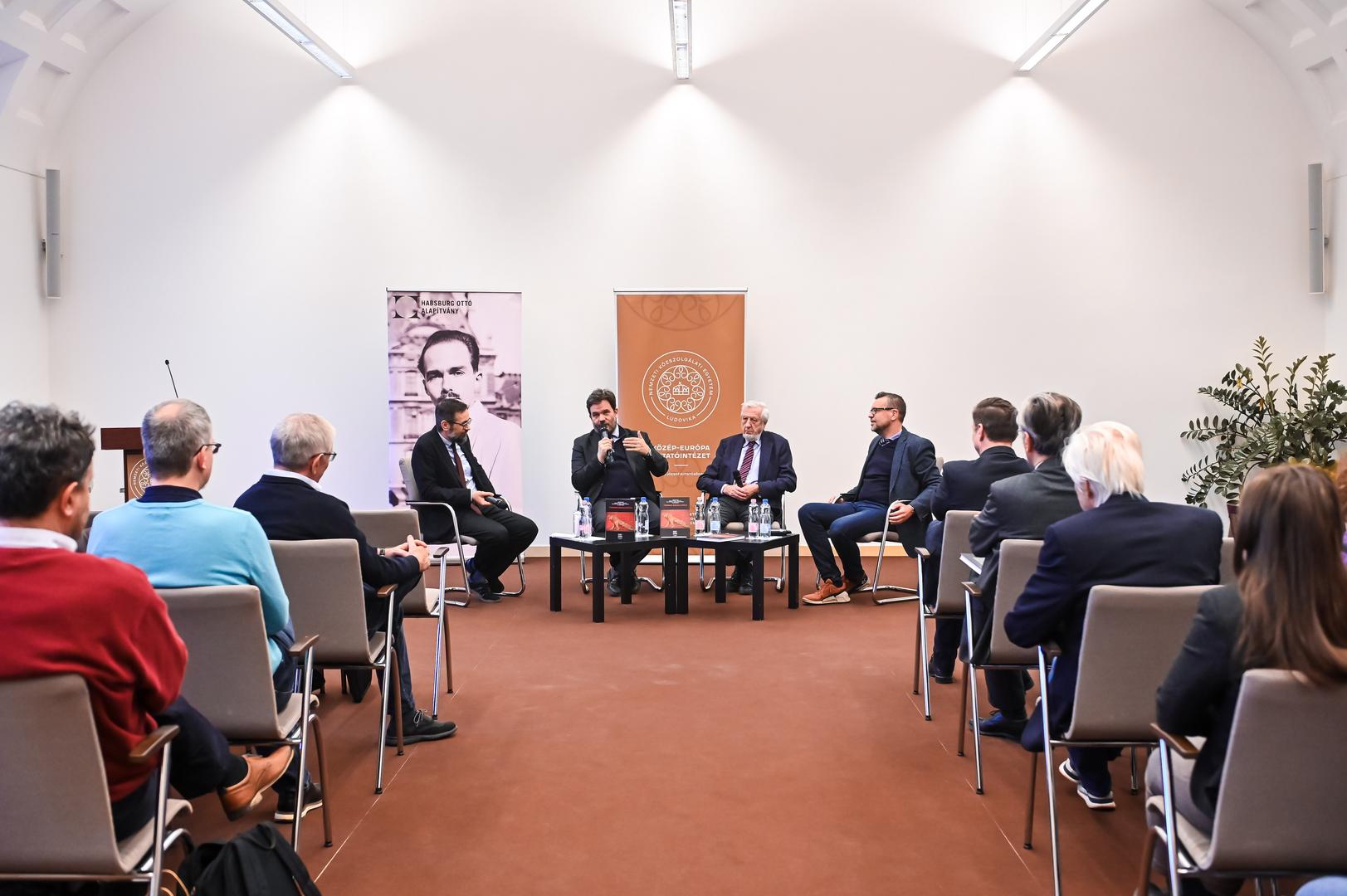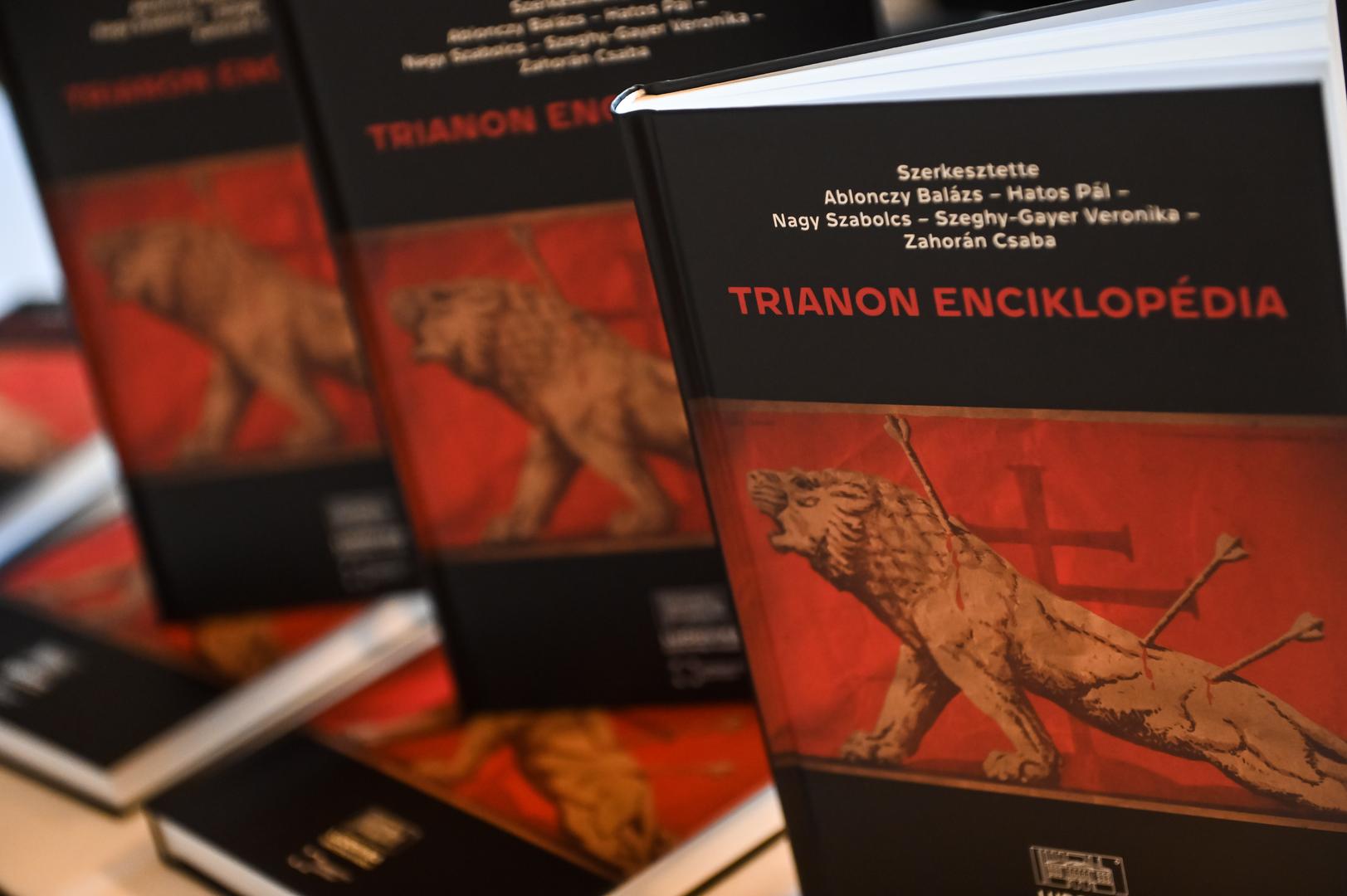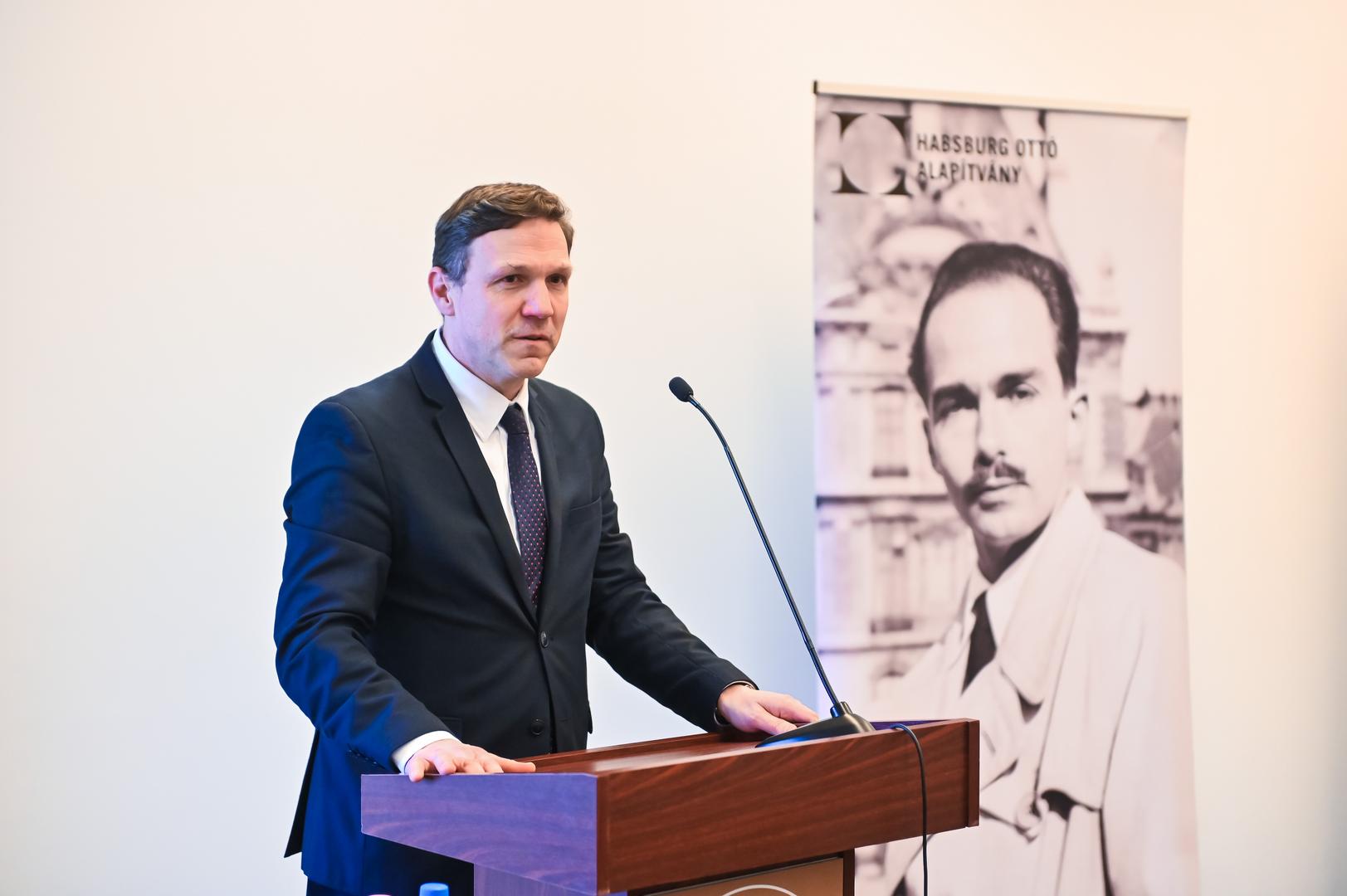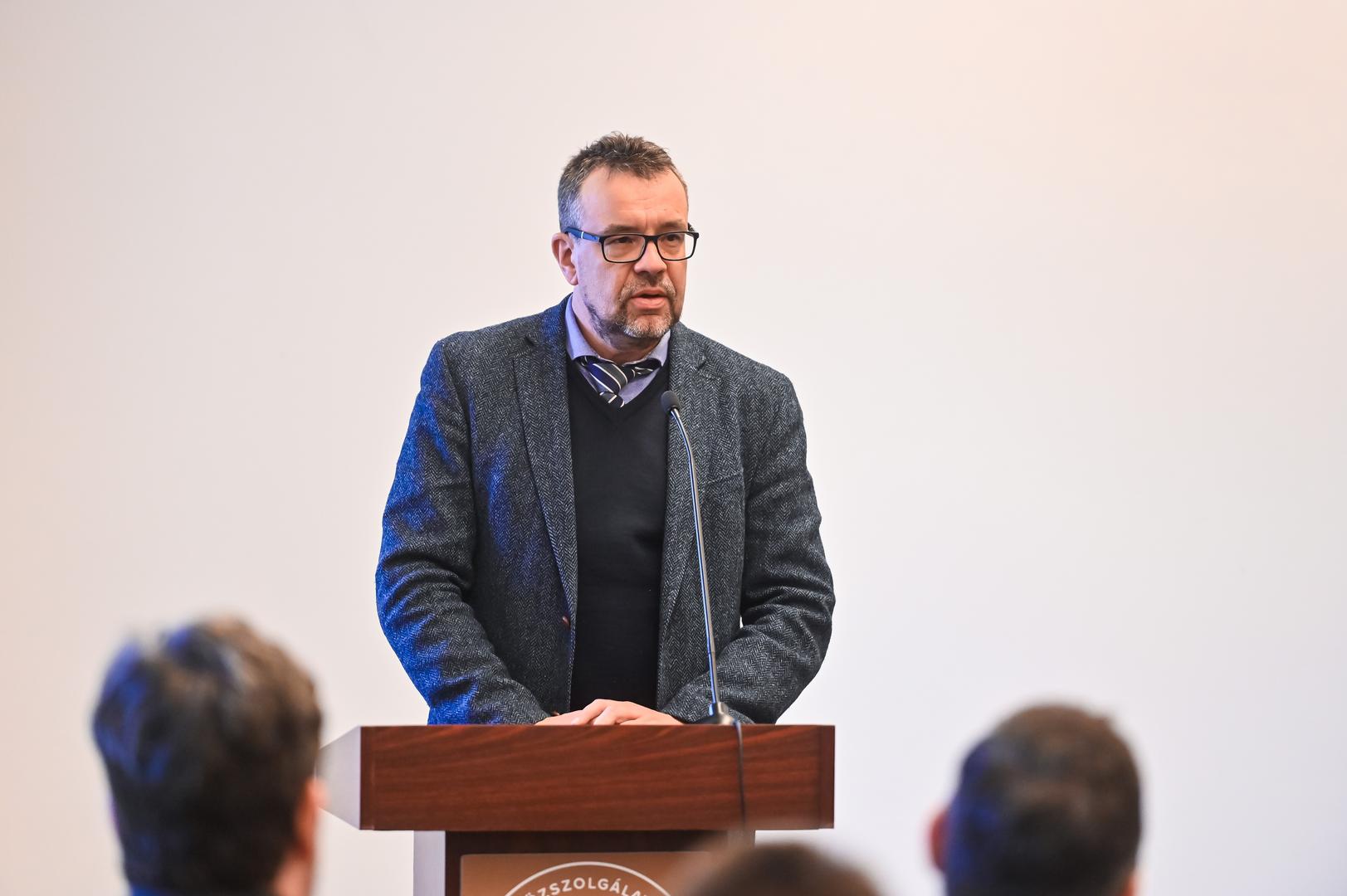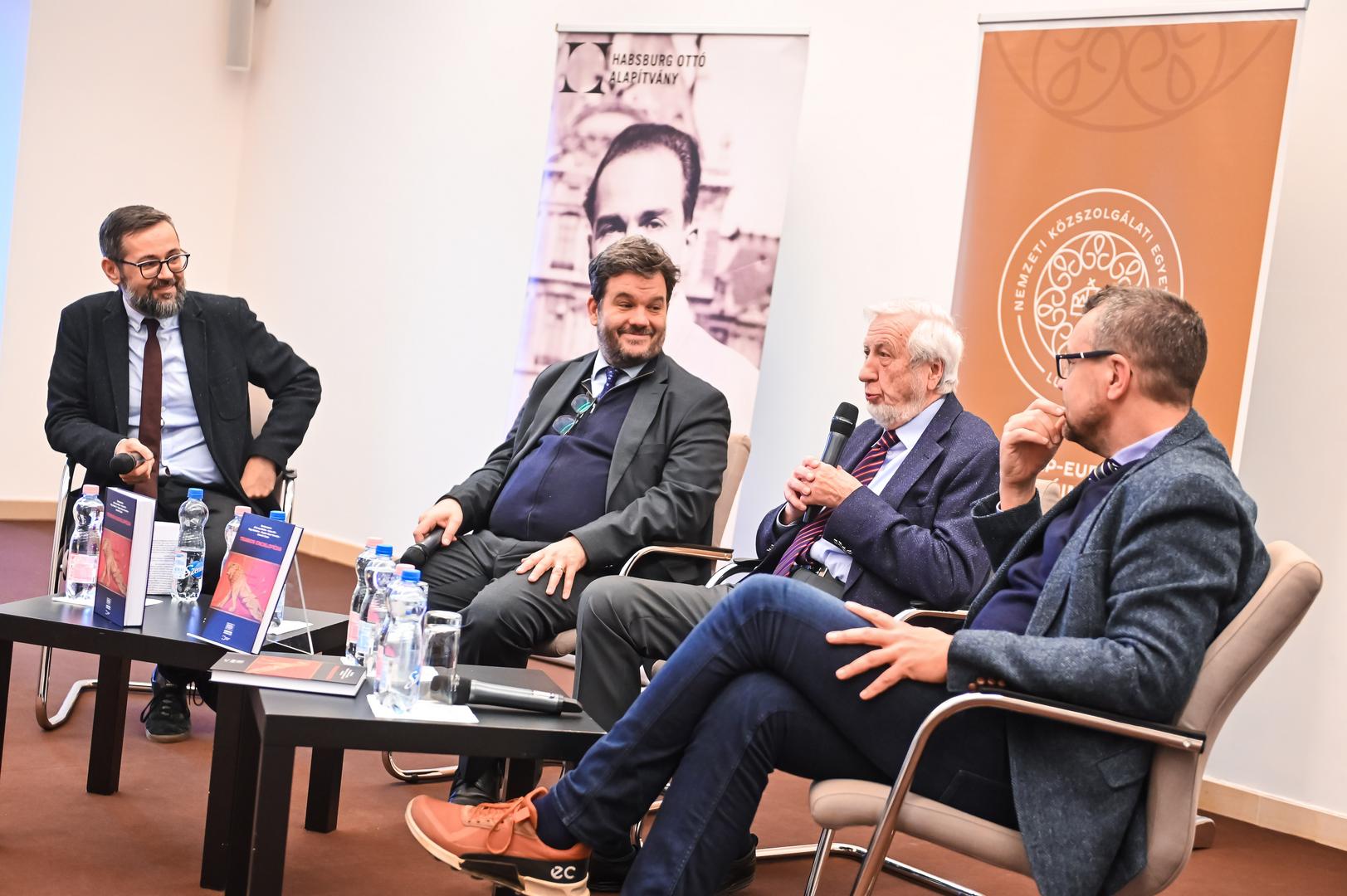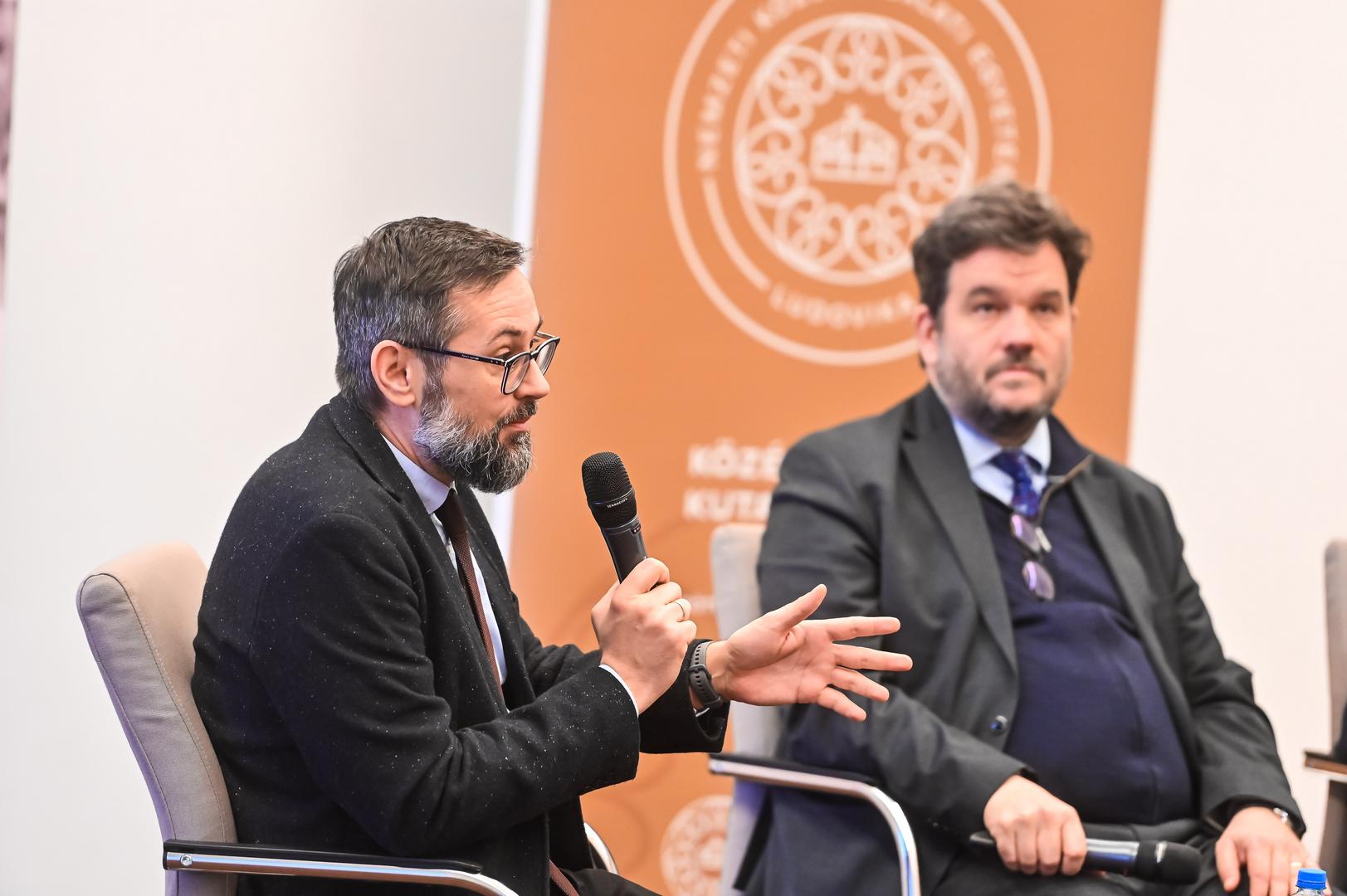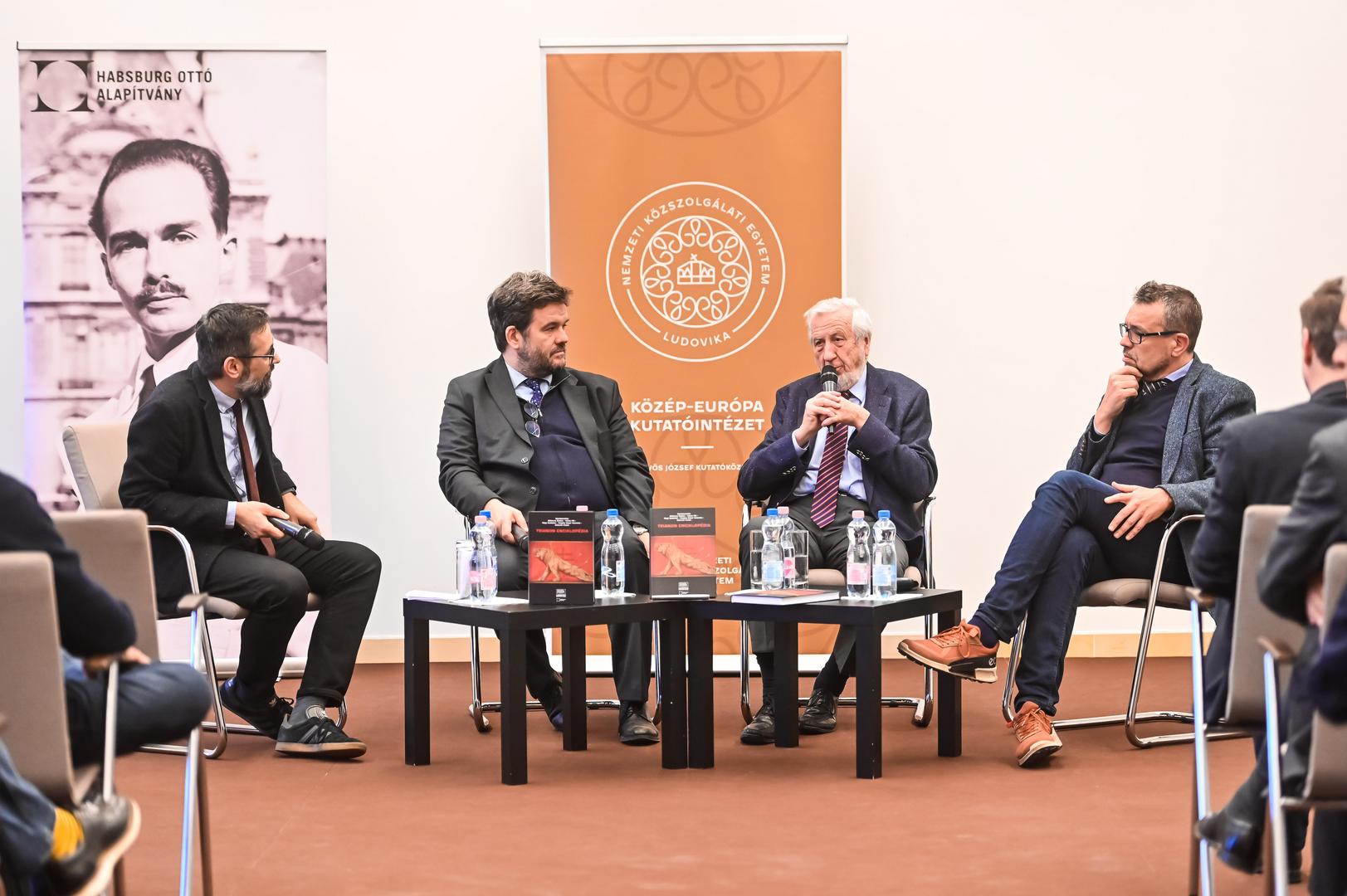The book, written and edited by prominent experts, presents a thorough overview of the peace treaty and its domestic and international aftermath. It nuances the academic discourse and public debate on the historical processes and interpretations surrounding Trianon. An article by our colleague Gergely István Szűts is among the nearly 70 mini-essays that seek to explore this turning point in Hungarian history.
Pál Hatos, Head of the Central European Research Institute of the Eötvös József Research Centre, welcomed the audience and thanked our Foundation for its contribution to the publication. In his reply, Gergely Fejérdy, our Deputy Scientific Director, recalled the parallels between the fate of the last Hungarian Crown Prince and that of historical Hungary.
Gergely Romsics presented to the audience the volume, edited by Balázs Ablonczy, Pál Hatos, Szabolcs Nagy, Veronika Szeghy-Gayer and Csaba Zahorán, containing 71 articles by nearly 40 authors. His analysis was followed by a round-table discussion, during which Géza Jeszenszky, historian and diplomat, Balázs Ablonczy and Pál Hatos shared some of the secrets of the trade: the principles of editing the volume, the historiographical vision and methodology of the articles. They all agreed that 104 years after the event, Trianon is still only partially processed as a trauma in the collective memory of Hungarian society. Therefore, the task of historians is not only to demolish myths but also to formulate comprehensible, straightforward answers that will resonate with today’s readers. The book is intended to meet this aim, and – as has been remarked – it would be expedient to translate it into world languages and the national languages of the neighbouring countries.
The Trianon Encyclopaedia is available for purchase on the website of Ludovika University Press and in larger bookshops.
Photos by Dénes Szilágyi (NKE)
